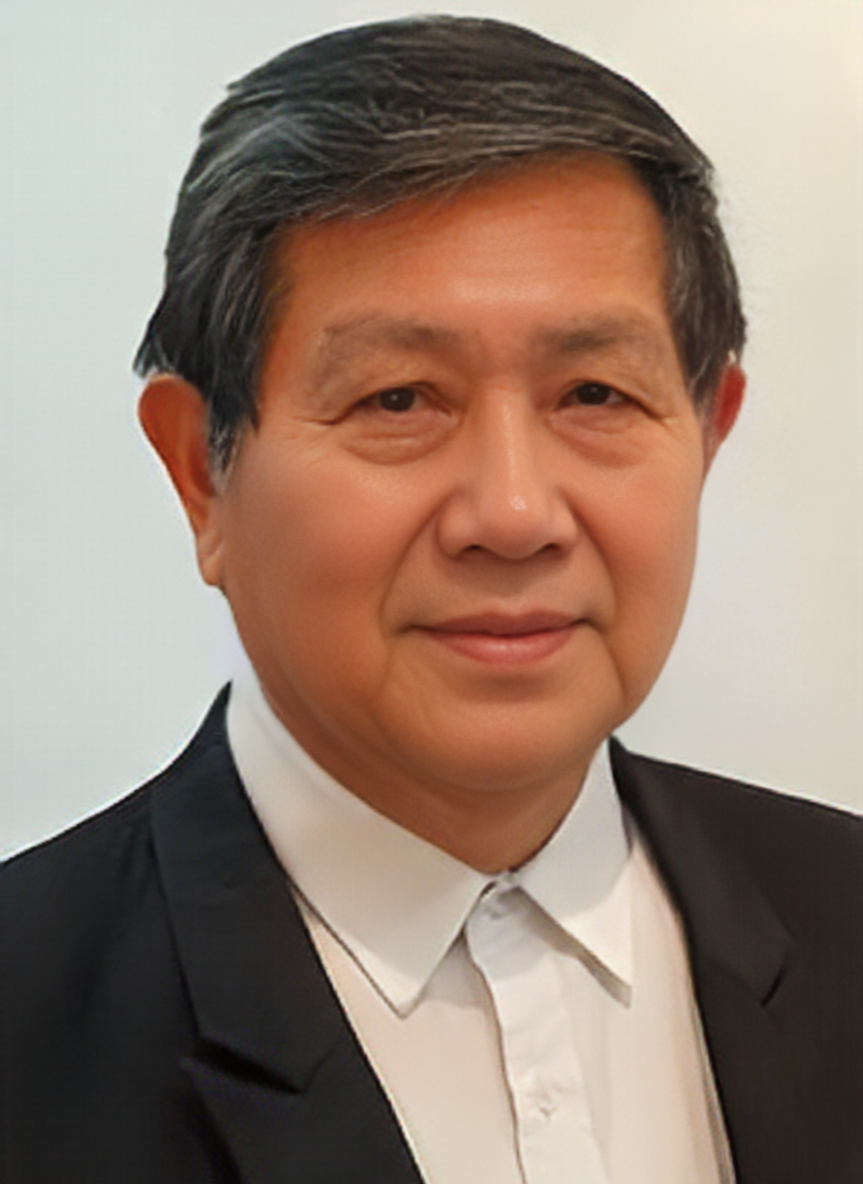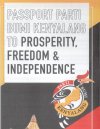 |
 |
1. Historic Malayan Admission: Sabah & Sarawak Have the Right to Exit Malaysia
Parti Bumi Kenyalang (PBK) President Voon Lee Shan and Sabah Sarawak Rights – Australia New Zealand (SSRANZ) President Robert Pei welcome the candid and unprecedented remarks by former Law Minister Datuk Zaid Ibrahim, who stated that if Sabah and Sarawak are unhappy with MA63, they “should leave the federation, like Singapore.”
This is the first time a prominent Malayan legal figure has openly confirmed that:
There is no legal impediment preventing Sabah and Sarawak from exiting Malaysia.
Zaid’s statement directly supports the long-standing PBK–SSRANZ position that:
• the right of self-determination of Sabah and Sarawak was never extinguished,
• MA63 was never validly formed under international law,
• and Malaysia’s claim over Sabah and Sarawak is legally defective and historically imposed.
Zaid’s remarks expose decades of false claims that secession is “illegal” seditious” or “impossible.” The fact is that Malaysia was never a voluntary union, but imposed by Malaya on Sabah and Sarawak. For the first time, a senior Malayan insider has publicly confirmed what PBK and SSRANZ have long maintained.
2. Zaid’s ‘Burden’ Comment Reveals Malayan Colonial Thinking — the Brown Man’s Burden
Zaid further claimed that Sabah and Sarawak are a “burden” to Malaya. This term is not merely insulting — it is historically loaded.
It echoes Rudyard Kipling’s colonial doctrine of the “White Man’s Burden”, where colonial subjects were depicted as inferior and costly dependants. 4. Today, it appears that the white colonial master was replaced by the brown one.
But the historical reality is the opposite:
Malaysia has been the burden on Sabah and Sarawak — not the other way around.
The Borneo territories have supplied oil, gas, timber, territory, strategic depth, electoral weight, and cultural legitimacy. Malaya has extracted these resources while returning a fraction of what is owed.
Zaid’s remark inadvertently exposes the neo-colonial logic at the heart of the Malaysian federation:
Sabah and Sarawak are expected to contribute, comply, and remain silent.
PBK and SSRANZ therefore regard Zaid’s comment as:
• a confession of Malayan attitudes,
• a confirmation of Malaya’s reliance on Borneo resources, and
• a validation that Sabah and Sarawak deserve — and possess — the right to independence.
3. Datuk Fazzrudin and Premier Bang Johari’s Reaction Misses the Point — Because It Protects the GPS Power Structure
Sarawak GPS assemblyman Datuk Fazzrudin Abdul Rahman attacked Zaid, calling his remarks “irresponsible” and “dangerous.”
This criticism is predictable. Federal-aligned leaders must defend Malaysia because their power depends on it.
But the facts are undeniable:
• Zaid’s comments are not seditious,
• not destabilising,
• and fully consistent with international law,
• consistent with Tunku Abdul Rahman’s own words,
• and consistent with Malaysia’s constitutional history.
Premier Abang Johari’s “Spirit of MA63” Is a Political Fiction
Premier Abang Johari claims rejecting MA63 destroys the “spirit of Malaysia.” This is false:
• There is no spirit in a treaty never honoured or invalid from the beginning.
• The 2022 amendment does not validate void ab initio MA63.
• Neither Sarawak nor Sabah ever held a referendum or democratically chose Malaysia, even after the UN assessment under the Manila Accord and the Jakarta Peace Treaty (1966) stipulating a referendum.
To suggest otherwise is to rewrite history.
What is truly “dangerous” is the continued denial of Borneo autonomy and real self-determination, not the honest acknowledgement that Sabah and Sarawak have an exit right.
4. MA63 Cannot Be Rewritten — Sabah and Sarawak Must First Be Independent
Claims that MA63 can be “repealed” or “rewritten” ignore the law: Malaysia cannot exist without MA63, yet the agreement is void ab initio, defectively formed, and repeatedly breached. Malaysia cannot legally exist without MA63. Yet MA63 is:
• invalid under international law,
• defective in its formation,
• violated repeatedly, and
• weaponised against the very territories it was meant to protect.
Key breaches:
• MA63 was negotiated and signed under emergency rule, during the Brunei anti-Malaysia uprising and the prolonged Malayan Emergency (1948–1978). Malaysia itself remained under emergency laws from 1963 until 2011.
• MA63 is void ab initio and has no legal force. It was never a valid international treaty, cannot be validated or reactivated, and the British transfer of Sabah and Sarawak into Malaysia was therefore unlawful. At the time, both territories were still British Crown Colonies with no treaty-making capacity under the Statute of Westminster 1931.
• The Secret UK–Malaya Agreement of 31 July 1962 predetermined the formation of Malaysia a full year before MA63 was signed.
• The UN assessment was compromised, rushed, and pre-empted by Tunku Abdul Rahman’s premature declaration of “Malaysia Day” on 16 September 1963 while the UN mission was still ongoing.
• UNGA Resolutions 1514 and 1541 were breached, as no referendum or genuine act of self-determination was ever conducted in Sabah or Sarawak.
• MA63 was not registered with the United Nations until 1970, reflecting its lack of international legal standing at the time of implementation. It was also absent from Malaysia’s federal constitution from 1963 to 2002, reinforcing the conclusion that Malaysia was never legitimately or effectively constituted under international law.
Thus, Malaysia’s foundation rests on a void treaty, imposed without consent, and built under coercive emergency conditions.
5. Zaid’s Remarks Confirm PBK–SSRANZ’s Position: Independence Is a Legitimate, Lawful Path
For decades, Sabah and Sarawak politicians aligned with Kuala Lumpur insisted:
• “secession is illegal,” (Not a condition for voluntary federation and therefor an intrinsic right to exit any time)
• “Malaysia is permanent,” (No colonial arrangement can be permanent e.g. East Timor & Chagos Cases)
• “self-determination does not apply.” (Malaysia was unfinished de-colonisation and self-determination is an inalienable right).
Zaid’s remarks demolish these claims. He confirmed what PBK and SSRANZ have said for years:
Sabah and Sarawak can leave Malaysia — legally, peacefully, constitutionally — just as Singapore did.
This reflects what both PM Tunku Abdul Rahman said on 18 July 1962 that it Sabah and Sarawak are not happy they may exit the union, and IGC Chairman Lord Lansdowne said in response to the same question on exit:"any State voluntarily entering a federation had an intrinsic right to secede at will".
If Malaya now views the Borneo territories as “burdens,” then the moral, political, and legal justification for continued federation collapses.
It is time to ask:
Why stay in a federation where we are unwanted, unrespected, and exploited?
6. The “Equal Partner” Myth: A Malayan Invention to Keep Borneo Compliant
Sarawak and Sabah leaders often speak of “equal partnership,” but:
• It appears nowhere in MA63.
• It was a British/Malayan political slogan, not a constitutional guarantee.
• Even Lord Cobbold warned that if equal partnership promises were broken, Borneo demands for independence would rise.
• Equal partners in the context of making a treaty implies that all parties must have equal standing as independent states, which Singapore, North Borneo and Sarawak were not. They were still colonies (up to 16/09/63) not sovereign states with legal capacity to make treaties. Their inclusion as MA63 signatories rendered the treaty void ab initio.
Today, Lord Cobbold’s prediction has come true.
The “partner” narrative has been used to pacify Borneo — not to empower it.
7. Preservation of Malaysia vs. Political Reality
Calls to preserve Malaysia and uphold MA63 ignore the reality faced by Sabah and Sarawak. The facts are clear:
• MA63 is a failed treaty,
• Malaysia is a failed federation, and
• “Restoring” MA63 is impossible without full renegotiation — which Malaya will never accept.
Malaya’s repeated breaches have already terminated the original constitutional compact. Remaining in Malaysia under the illusion of an “equal partnership” only entrenches GPS dominance and prolongs Borneo subservience. True nationalists recognize that Sabah and Sarawak must reclaim full self-determination to secure justice, equality, and genuine autonomy.
8. The International Law Bottom Line
Under international law:
Sabah and Sarawak possess:
• the right to self-determination,
• the right to independence,
• and the right to exit a defective, breached, or coercively negotiated treaty.
Malaysia’s claim is weakened because:
• MA63 was void ab initio,
• no valid consent was obtained,
• the UN process was compromised,
• and treaty conditions have been fundamentally breached.
No amount of political rhetoric can erase these facts.
9. Conclusion: Zaid Has Opened the Door — Borneo Must not Close it but Walk Through It
Zaid Ibrahim’s remarks — whether intentional or accidental — have done what GPS leaders dare not:
• Expose Malayan neo-colonial attitudes,
• Validate the Borneo exit right,
• Trigger a long-overdue national conversation, and
• Confirm PBK–SSRANZ’s long-held position.
Sabah and Sarawak now face a choice:
Remain in a federation where we are considered burdens —or reclaim the sovereignty that was never lawfully surrendered.
PBK and SSRANZ choose the latter. And we invite all Sabahans and Sarawakians — across parties, communities, and generations — to examine the evidence, understand the history, and stand for the future.
We stand for the independence, dignity, and self-determination of Sabah and Sarawak.
Issued on 25/11/25 by:
Voon Lee Shan, President, Parti Bumi Kenyalang (PBK)
and
Robert Pei, President, Sabah Sarawak Rights – Australia New Zealand (SSRANZ)









